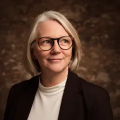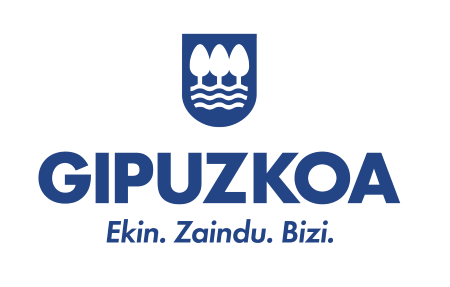
Rethinking and building democracy in a changing international order
Description
The main goal of the course is to reflect on the transformative crisis that democracy is undergoing and which is affecting the quality and functioning of democratic systems and public administrations in different parts of the world. This crisis is apparent in different ways: civic apathy, where many people feel disengaged from politics, which leads to low voter turnout, greater scepticism regarding politicians and a growing apathy about the democratic process; the rise of populism, which has emerged in response to the lack of trust in the political elite, with movements that promise to respect the citizens, but they often simplify complex problems and can undermine democratic norms by fostering controversial and divisive narratives; the ever-greater economic inequality, where the gap between rich and poor has led to a sense of injustice and marginalisation, fuelling discontent and the search for Techno-Populist political alternatives; the erosion of the institutions, where the democratic institutions in some countries are being weakened by authoritarian leaders who are seeking to concentrate power, which includes attacking freedom of press, judicial independence and civil society, threatening the balance of power; and misinformation and misleading, where the proliferation of fake news and the manipulating of information through social media hinder the ability of the citizens to make informed decisions, which can led to polarisation and radicalisation of opinions.
This course will consider the factors leading to the transformation of democracy around the world and we will seek to explain what is happening in the democracies around us. We will delve further into the current state of the political debate about the transformation of democracy and its consequences; we will examine the fundamental challenges for upholding and consolidating democracy, both from the point of view of public policies and the grassroots political culture.
Objectives
Delve into the factors behind the transformation of democracy around the world and explain the social, economic and political context of the democracies around us, noted for the institutional crisis, mediation crises, disaffection, polarization and the emergence of populism.
Reflect on the current state of debate regarding the transformation of democracy and its consequences on public opinion, by analysing the role of the traditional media, social media, the political players and the citizens in the societies around us, and most particularly in Basque society.
Examine the fundamental challenges facing the societies around us and, in particular, Basque society, to uphold and consolidate democracy, both from the perspective of public policies and from grassroots political culture.
Activity directed to
- All public
- Professionals
- Administrazio publikoa
Program
05-09-2025
Institutional Opening session. Speaking order:
- Idoia Otaegui Aizpurua | Uda Ikastaroak Fundazioa / Fundación Cursos de Verano - Zuzendari akademikoa / Directora académica
- Yosu Arraiz Aramburu | Gipuzkoako Foru Aldundia / Diputación Foral de Gipuzkoa - Estrategia zuzendaria / Director de Estrategia
- Juana Goizueta Vértiz | Euskal Herriko Unibertsitatea / Universidad del País Vasco - Gipuzkoako Errektoreordea / Vicerrectora del Campus de Gipuzkoa
- Eider Mendoza Larrañaga | Gipuzkoako Foru Aldundia / Diputación Foral de Gipuzkoa - Gipuzkoako diputatu nagusia / Diputada general de Gipuzkoa
“Ziurgabetasun globala: «Ikuspegi geopolitikoak mundu zatikatu batean» / Incertidumbre Global: “Perspectivas geopolíticas en un mundo fragmentado” “
- Carme Colomina Saló | CIDOB (Barcelona Centre for International Affairs) - Ikertzaile seniorra / Investigadora senior
“Demokrazia tentsioan: polarizazioa, populismoa eta gatazka XXI. mendean / Democracia en tensión: polarización, populismo y conflicto en el siglo XXI “
- Miriam Juan Torres | Berkeleyko unibertsitatea / Universidad de Berkeley - Othering and Belonging Instituteko Democracy and Belonging Forum programako ikerketa-burua / Jefa de investigación del programa Democracy and Belonging Forum del Othering and Belonging Institute
“Eztabaida / Debate“
- Carme Colomina Saló | CIDOB (Barcelona Centre for International Affairs) - Ikertzaile seniorra / Investigadora senior
- Miriam Juan Torres | Berkeleyko unibertsitatea / Universidad de Berkeley - Othering and Belonging Instituteko Democracy and Belonging Forum programako ikerketa-burua / Jefa de investigación del programa Democracy and Belonging Forum del Othering and Belonging Institute
Moderatzailea / Moderador:
- Xabier Barandiaran Irastorza | Deustuko unibertsitatea / Universidad de Deusto - Deustuko Unibertsitateko Gizarte eta Giza Zientzietako Departamentuko irakasle titularra / Profesor titular del Departamento de Ciencias Sociales y Humanas en la Universidad de Deusto
Break
“Is misinformation killing our Democracy? / Desinformazioa gure demokrazia hiltzen ari ote da? / ¿La desinformación está matando nuestra democracia?“
- Vilma Luoma-aho | University of Jyvaskyla (Finlandia) / Jyvaskylako unibertsitatea (Finlandia) / Universidad de Jyvaskyla (Finlandia) - Vice Dean in charge of Education at School of Business and Economics / Enpresa eta Ekonomia Fakultateko Hezkuntzako dekanordea / Vicedecana de Educación en la Facultad de Empresa y Economía
“How Does the Crisis of Democracy Affect the Public Administration? / Nola eragiten dio demokraziaren krisiak administrazio publikoari? /¿Cómo afecta la crisis de la democracia a la Administración pública?“
The Variants of the Anti-Liberal Norms and their Implications for the Public Administration and its Employees / Liberalismoaren aurkako arauen aldaerak eta horiek administrazio publikoarentzat eta enplegatuentzat dituzten inplikazioak / Las variantes de las normas antiliberales y sus implicaciones para la administración pública y sus empleados
- Michael Bauer | Florence Transnational Governance School of the European University Institute / Europako Unibertsitate Institutuaren Florentziako Gobernantza Transnazionaleko Eskola / Escuela de Gobernanza Transnacional de Florencia del Instituto Universitario Europeo - Chair in Public Administration / Administrazio Publikoko katedraduna / Catedrático de Administración Pública
“Eztabaida / Debate“
- Vilma Luoma-aho | University of Jyvaskyla (Finlandia) / Jyvaskylako unibertsitatea (Finlandia) / Universidad de Jyvaskyla (Finlandia) - Vice Dean in charge of Education at School of Business and Economics / Enpresa eta Ekonomia Fakultateko Hezkuntzako dekanordea / Vicedecana de Educación en la Facultad de Empresa y Economía
- Michael Bauer | Florence Transnational Governance School of the European University Institute / Europako Unibertsitate Institutuaren Florentziako Gobernantza Transnazionaleko Eskola / Escuela de Gobernanza Transnacional de Florencia del Instituto Universitario Europeo - Chair in Public Administration / Administrazio Publikoko katedraduna / Catedrático de Administración Pública
Moderatzailea / Moderadora:
- Maria Jose Canel Crespo | Madrilgo Unibertsitate Konplutensea / Universidad Complutense de Madrid - Komunikazio Politikoko eta Sektore Publikoko katedraduna / Catedrática de comunicación política
Directors

Yosu Arraiz Aramburu
Gipuzkoako Foru Aldundia
- Position: General Manager of Strategy (2025-present). Studies: Graduate in Civil Engineering (UPV/EHU); Master's Degree in Civil Engineering (University of Cantabria); Expert Course in Urban Innovation (MU). - Professional and political career: Director General of Innovation in Administration, Provincial Council of Gipuzkoa (2023-2025); Councillor responsible for Urban Planning, Works and Services, Elgoibar (2015-2023). President of the Community of Municipalities of Debabarrena (2019-2023). Vice-President of Gipuzkoako Hondakinen Kontsortzioa (2019-2023).
Speakers
Xabier Barandiaran Irastorza
Universidad de Deusto, Profesor
Adviser to the General Deputy of Gipuzkoa and one of the main promoters of the development of Etorkizuna Eraikiz. He is a Doctor in Sociology and Full Professor at the Faculty of Social and Human Sciences of the University of Deusto.

Michael Bauer
Michael W. Bauer holds the Chair in Public Administration at the Florence Transnational Governance School of the European University Institute. Michael studied German philology, history, and social sciences before obtaining a Diploma in Social Sciences from Humboldt-University in Berlin He later earned a Master of Arts in European Political and Administrative Science from the College of Europe in Bruges (Tocqueville Promotion). He completed his Ph.D. in Social and Political Sciences at the EUI. His academic career includes positions as a Senior Fellow at the Max Planck Institute for Research on Collective Goods in Bonn, and professorships at the University of Konstanz and Humboldt University in Berlin. He has held numerous visiting and part-time academic positions at institutions across Europe, including ISCTE – University Institute of Lison, La Coruña University, and the Turkish-German University in Istanbul. His research focuses on European and international public administration, multilevel governance, and democratic bureaucracy. He has recently explored the impact of populist government on public administration systems and the ethical responsibilities of civil servants under illiberal rule.

Maria Jose Canel Crespo
Professor of Political Communication and Public Sector (Complutense University of Madrid), visiting scholar at George Washington University and Jyvaskyla University. Specialised in the development of intangible resources (trust, commitment, legitimacy and sustainability). She has been a facilitator of active learning initiatives in Etorkizuna Eraikiz and has advised on its internal and external listening processes.

Carme Colomina Saló
Carme Colomina is a Senior Research Fellow specialising in the European Union, disinformation and global politics at CIDOB (Barcelona Centre for International Affairs), as well as being an editor and member of the Editorial Board. She is also a visiting professor at the College of Europe in Bruges, Belgium, where she teaches a course on Communications Management in the European Union, and at the Universitat Pompeu Fabra. After graduating in Information Science from the Autonomous University of Barcelona and completing a postgraduate course in European Union Studies from the UOC, she was the Brussels correspondent and Head of International Affairs for Catalunya Ràdio and for the ARA newspaper. She is a regular contributor to different media outlets. As a special envoy, she covered international summits and political conflicts in a score of countries, as well as working as a consultant on various communication projects in the European and Euro-Mediterranean sphere. Before joining CIDOB, she was also Head of Interregional Cooperation in the Foreign Affairs Department of the Catalan government.

Miriam Juan Torres
Míriam Juan-Torres is a multidisciplinary researcher, writer, and public speaker and expert on authoritarian populism, polarization, and human rights. She currently works as the Head of Research at the Democracy & Belonging Forum of the Othering & Belonging at University of California, Berkeley. Senior Advisor at the More in Common international organisation. She has also worked as an associate professor in human rights at the Autonomous University of Barcelona. Miriam was also an UN consultant in Ghana and Colombia, where she worked for the United Nations High Commissioner for Refugees and the UN High Commissioner for Human Rights, respectively. Miriam holds a Master’s Degree in Global Affairs from Yale University and a law degree from the Autonomous University of Barcelona.

Vilma Luoma-aho
Dr. Vilma Luoma-aho is professor of Corporate Communication and Vice Dean in charge of Education at School of Business & Economics, University of Jyvaskyla, Finland. Luoma-aho has published several books and articles in leading communication journals on digital stakeholders and new forms of influence, and serves on the board of trustees of Arthur W. Page Society (New York), an elite community of world's leading communicators. Known for her engaging content, she teaches university and executive education programmes in Finland, Norway and Germany, and consults organizations across sectors on meeting the new expectations of digital stakeholders. In Finland, she chairs the social science division of MATINE under the Ministry of Defense, and studies the hijacking of authority communication. She leads several research projects: AIDEMOC funded by Finnish Research Council’s Strategic Research Funding focuses on misinformation and the malicious use of AI to harm democracy, and HIJACK focuses on hijacking authority communication online.
Registration fees
| Face-to-face | Until 05-09-2025 |
|---|---|
| 0 EUR |
Venue
Miramar Palace
Pº de Miraconcha nº 48. Donostia / San Sebastián
Gipuzkoa
Miramar Palace
Pº de Miraconcha nº 48. Donostia / San Sebastián
Gipuzkoa





